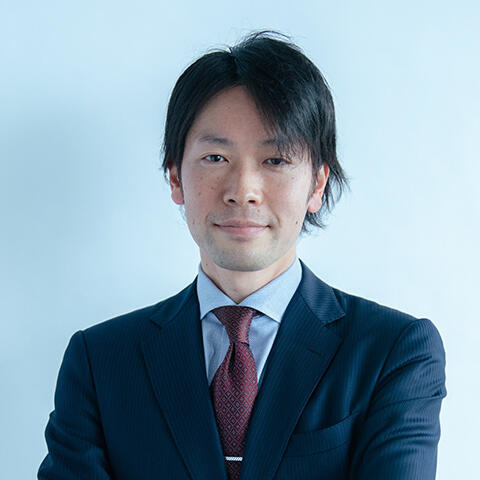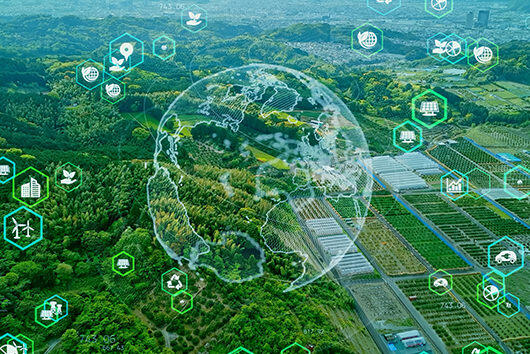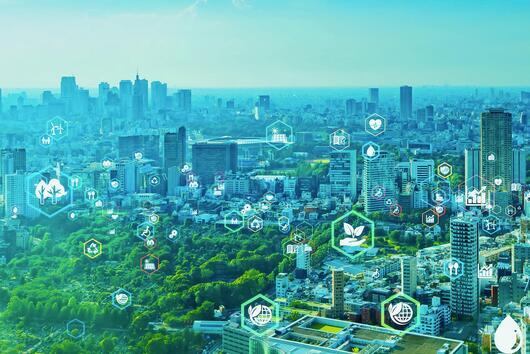In recent years, the term "smart city" has become more common in the news and in books.
In this future-oriented urban development, various industries are working beyond their boundaries to engage in technological development, social experiments, and business ventures.
In this article, I would like to consider the background to the need for smart cities and the type of smart cities that society currently requires.
INDEX
- Expanding cities and shrinking regions are common issues around the world
- Digital technology combined with urban development to make life easier
- Equipping cities with flexibility, resilience and sustainability
- Achieving decarbonization
Expanding cities and shrinking regions are common issues around the world
Around the world, population concentration in urban areas and urbanization in emerging countries are accelerating. As a result, responding to expanding energy demand, traffic congestion, and planned urban development and renewal are becoming major issues.
On the other hand, Japan is facing a population outflow from rural to urban areas, and financial difficulties for local governments. A shortage of workers to take on local industries and aging infrastructure are threatening the sustainability of public services themselves, and threats and crises such as COVID-19 and climate change are becoming real risks. Building resilient cities that can withstand these threats is a global challenge.
Digital technology combined with urban development to make life easier
A smart city is a town or city that utilizes advanced technology to solve these problems and improve our lives.
In recent years, a technology called digital twin has been attracting attention in the construction of smart cities. This is said to be a mechanism for recreating the real world in a virtual space, analyzing data obtained from the physical world and making future predictions in the virtual space, and then reflecting the results in real-world urban development.
For example, one possible initiative would be to predict congestion based on traffic information and have the results reflected in the autonomous driving system.
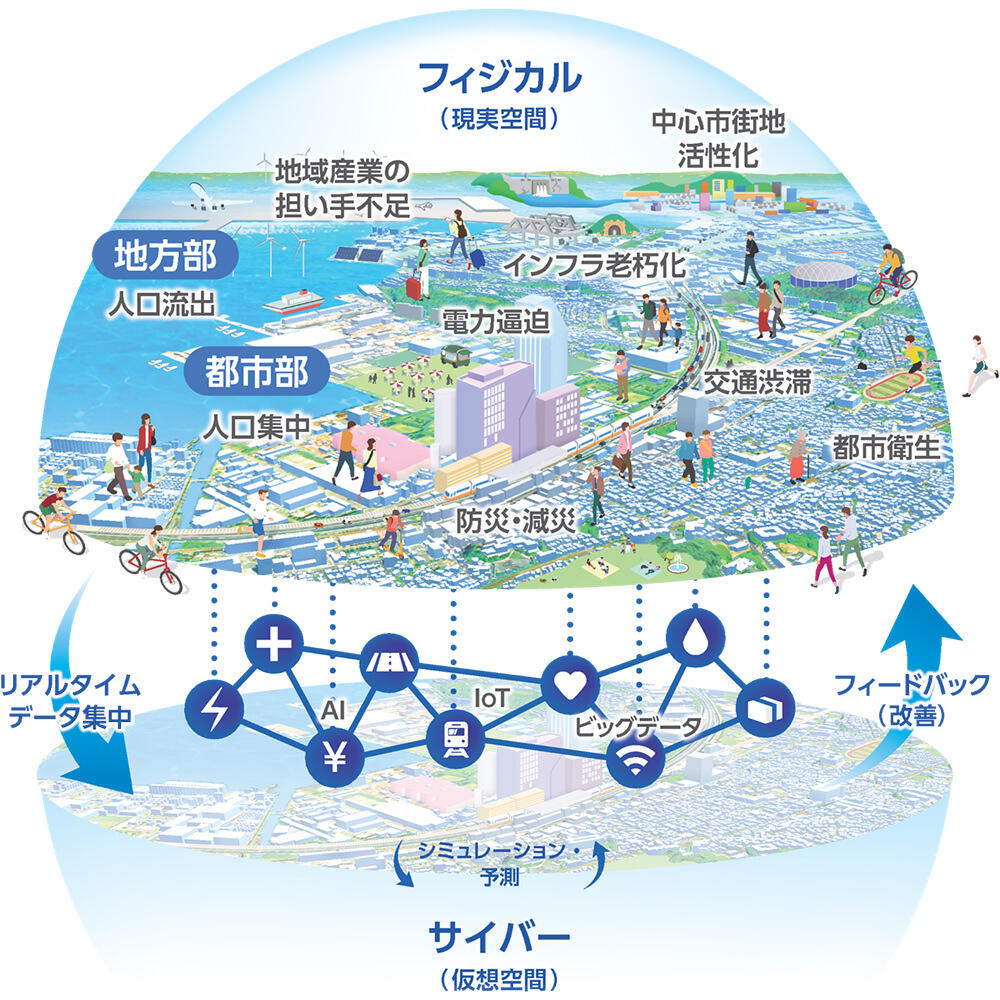
Equipping cities with flexibility, resilience and sustainability
To be more specific, I would like to list some of the initiatives that are socially required in the three areas of transportation, disaster prevention, and energy.
1. Transportation
- To alleviate traffic congestion and create more spacious roads, road traffic simulation is used to change the number of lanes in real time and to display traffic signals flexibly.
- Providing information on optimal travel routes using people flow simulations to create a seamless transportation environment (trains, buses, personal mobility, etc.)
- To create a rich urban space, parking lots can be flexibly repurposed according to their usage (e.g., as community spaces, workspaces, disaster preparedness storage warehouses, or mobile sales spaces for food trucks, etc.)
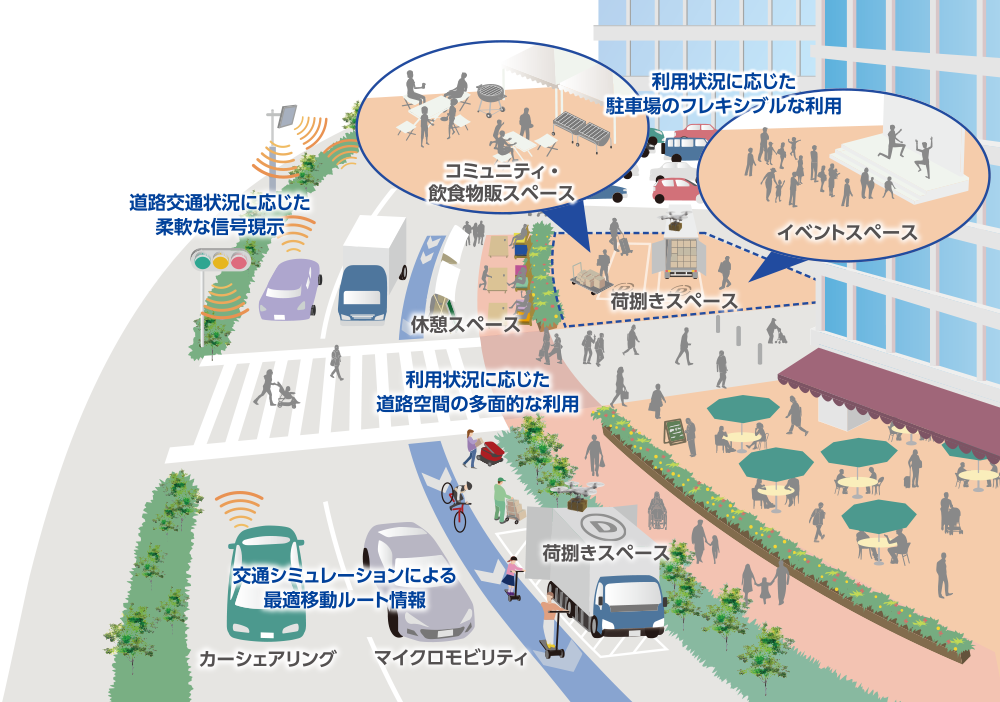
2. Disaster Prevention
- Evacuation guidance support using disaster simulations of flooding, landslides, etc. based on meteorological information
- Supporting the transportation of goods using a real-time information gathering system for evacuation shelters and disaster prevention stockpiles during disasters
- Supporting early disaster recovery through image analysis using satellites, drones, etc.
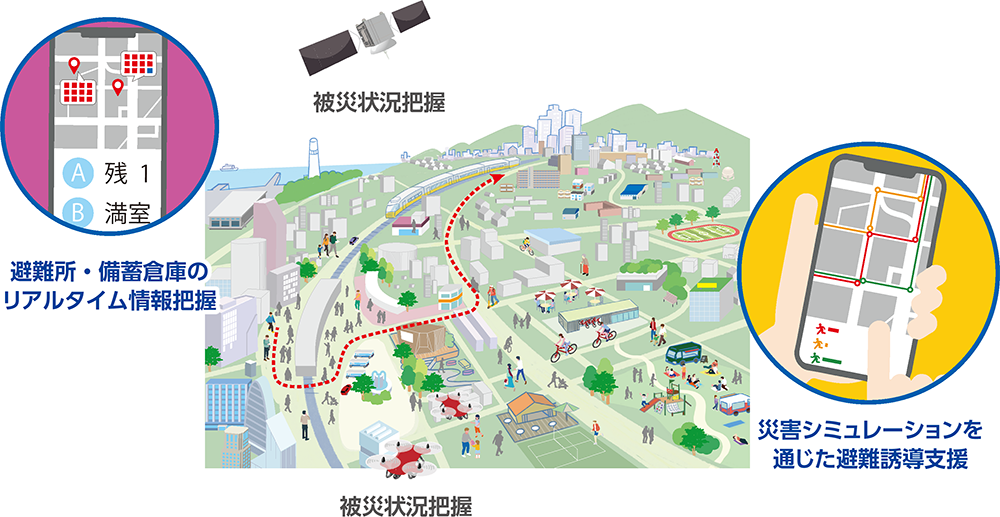
3. Energy
- Optimizing energy usage and procurement using electricity supply and demand simulation
- Stable supply of electricity in times of disaster based on the development of independent and distributed power sources (including storage batteries and electric cars)
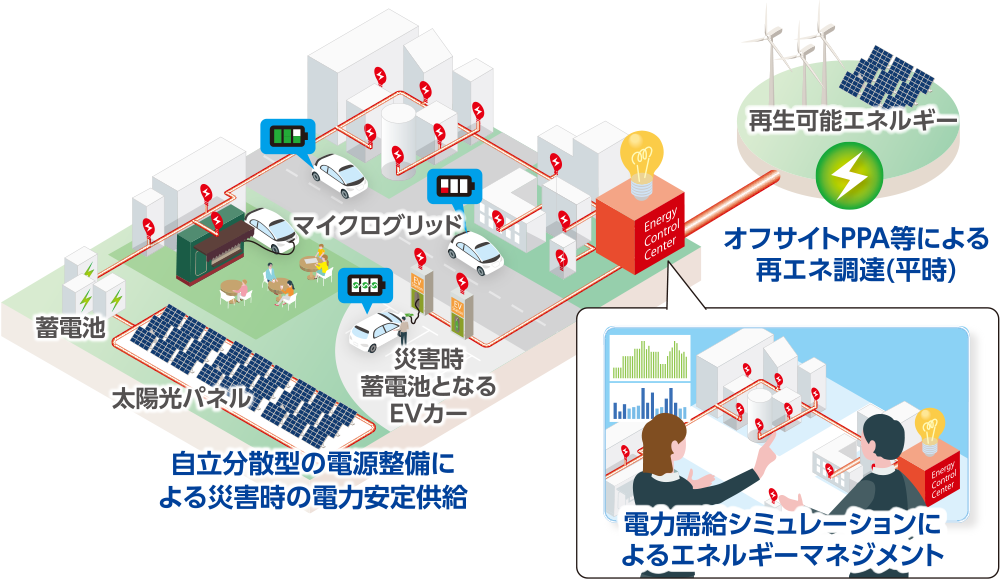
Achieving decarbonization
Cities spend a lot of time being developed and operated, and if the issues that arise in the process are not resolved, the value of the city will decline. In particular, there is a strong demand from society for efforts toward "decarbonization" going forward.
Therefore, from an ESG perspective (Environment, Society, and Governance), we believe it is important to combine the aforementioned initiatives in a comprehensive manner to generate revenue and attract investment and increase economic added value.
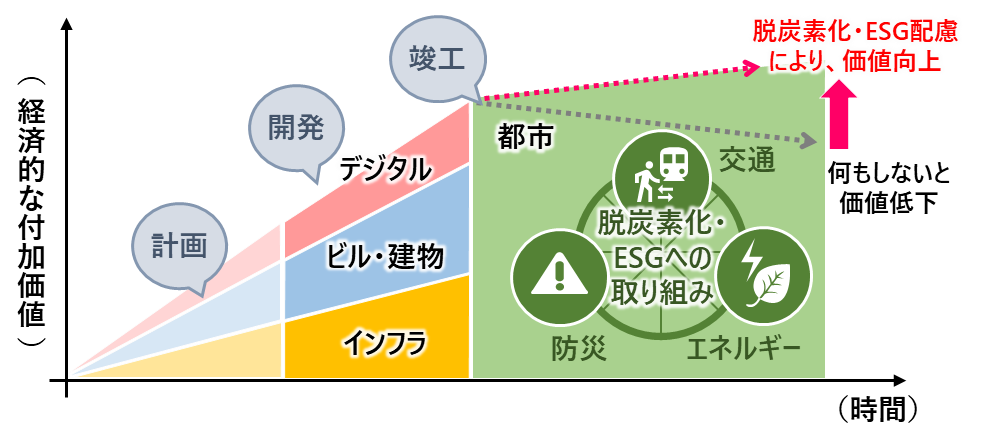
The initiatives mentioned here would not be possible without digital technology alone, but rather the knowledge and technology we have accumulated about the relationship between people and social infrastructure. Therefore, I believe that our role and responsibilities will only become greater in the future.
We want to play a leading role in responding to the needs of society through collaboration and co-creation that transcends industry boundaries.
Source: "Like! The real appeal of the construction industry: If you know the content of the work, you will want to get more involved," written by the Construction Future Research Group, edited by Nikkei Construction, Nikkei BP
*With permission from Nikkei BP, the text has been modified.




